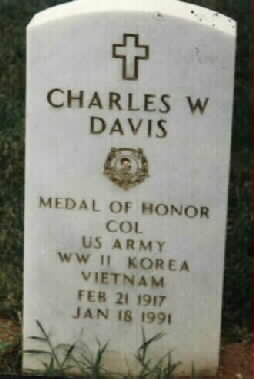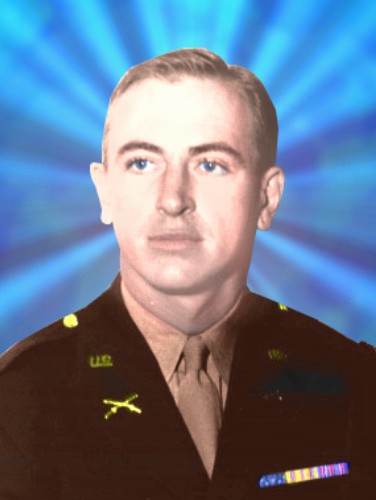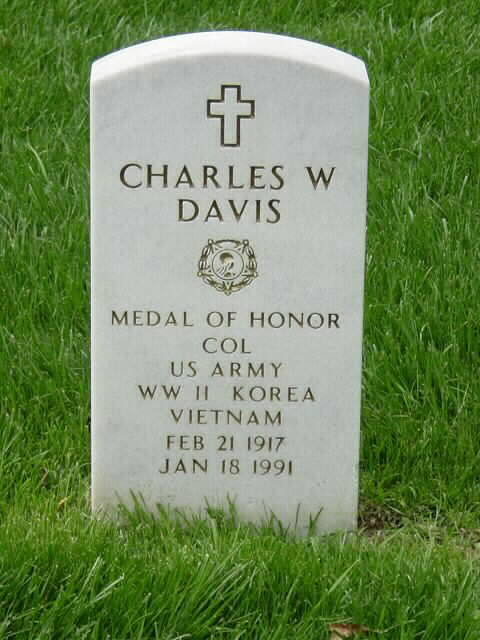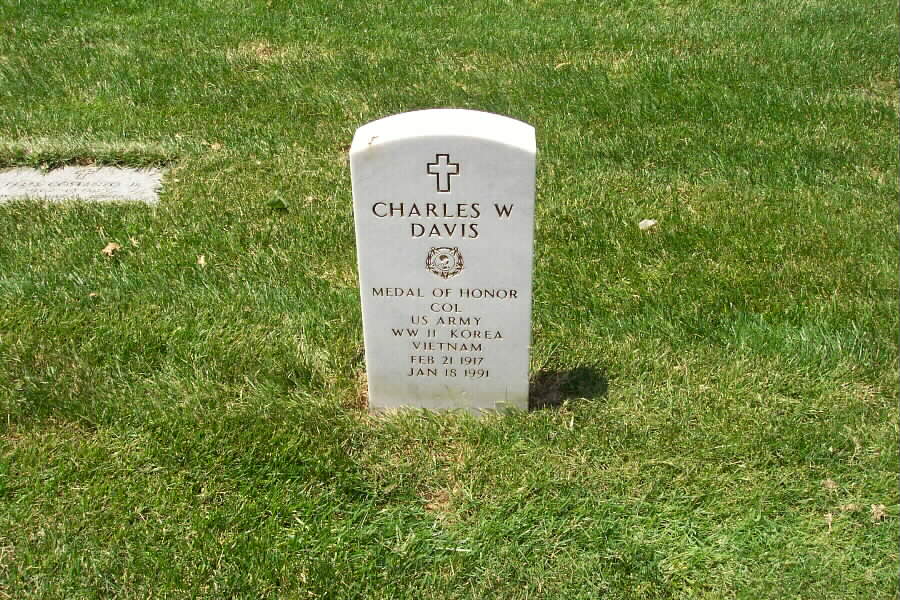Born at Gordo, Alabama, Colonel Davis earned the Medal of Honor during World War II while serving as a Major, 25th Infantry Division on Guadalcanal Island on January 12, 1943.
Davis received the Medal for distinguishing himself by gallantry and intrepidity at the risk of his own life above and beyond the call of duty in action with enemy Japanese forces. Then a Captain and Executive Officer of an Infantry Battalion, he volunteered to carry instructions to leading companies of his battalion which had been caught in a cross-fire from Japanese machine guns.
With complete disregard for his own safety, he made his way to the trapped units, delivered the instructions, supervised their execution and remained overnight in this exposed position.
The following day, he again volunteered to lean an advance on the Japanese positions which were holding up the advance of the entire battalion. When his rifle jammed at its first shot, he drew his pistol and, waving his men on, led the assault over the top of the hill. Electrified by his actions, another body of U.S. soldiers followed and seized the hill. The capture of this vital position broke Japanese resistance and the battalion was then able to proceed and secure the corps objective. His courage and leadership inspired the entire battalion and unquestionably led to the success of the attack.
He is buried in Section 7-A of Arlington National Cemetery.
DAVIS, CHARLES W.
Rank and organization: Major, U.S. Army, 25th Infantry Division. Place and date: Guadalcanal Island, 12 January 1943. Entered service at: Montgomery, Alabama. Birth: Gordo, Alabama. G.O. No.: 40, 17 July 1943.
Citation:
For distinguishing himself conspicuously by gallantry and intrepidity at the risk of his life above and beyond the call of duty in action with the enemy on Guadalcanal Island. On 12 January 1943, Major Davis (then Captain), executive officer of an infantry battalion, volunteered to carry instructions to the leading companies of his battalion which had been caught in crossfire from Japanese machine guns. With complete disregard for his own safety, he made his way to the trapped units, delivered the instructions, supervised their execution, and remained overnight in this exposed position. On the following day, Major Davis again volunteered to lead an assault on the Japanese position which was holding up the advance. When his rifle jammed at its first shot, he drew his pistol and, waving his men on, led the assault over the top of the hill. Electrified by this action, another body of soldiers followed and seized the hill. The capture of this position broke Japanese resistance and the battalion was then able to proceed and secure the corps objective. The courage and leadership displayed by Major Davis inspired the entire battalion and unquestionably led to the success of its attack.

Michael Robert Patterson was born in Arlington and is the son of a former officer of the US Army. So it was no wonder that sooner or later his interests drew him to American history and especially to American military history. Many of his articles can be found on renowned portals like the New York Times, Washingtonpost or Wikipedia.
Reviewed by: Michael Howard



